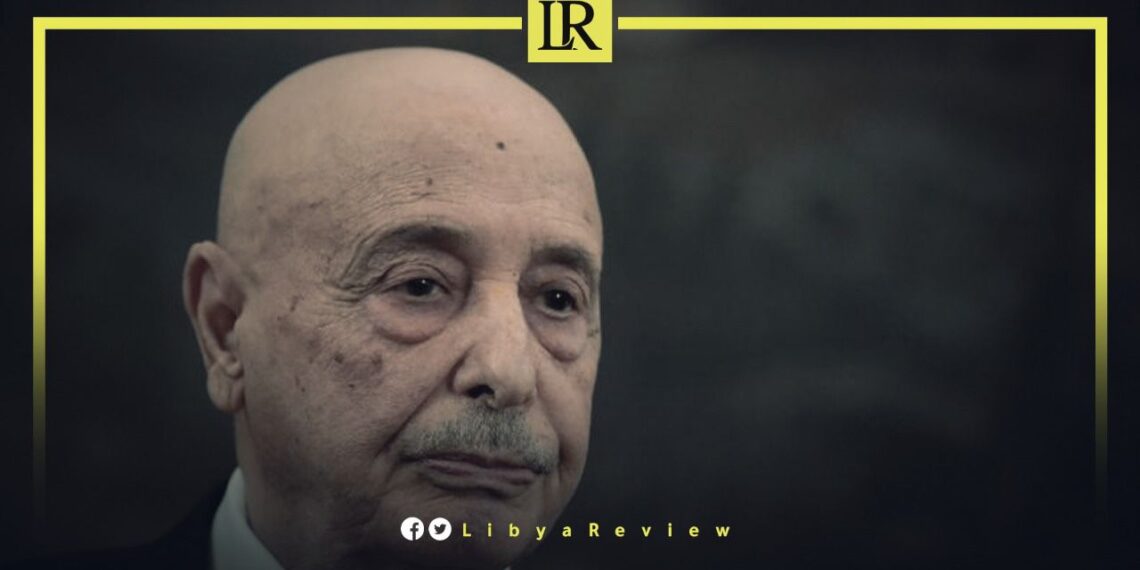On Sunday, the Speaker of the Libyan House of Representatives, Ageela Saleh, asserted that the ongoing political deadlock in Libya will not escalate into military conflict or war among its people.
Speaking to the Asharq Al Awsat newspaper, Saleh conveyed confidence that a new war is unlikely, crediting the Libyan public’s understanding that further conflicts would only deepen the country’s division and chaos, ultimately leading Libya towards becoming a state under foreign control.
Saleh firmly believes that forming a new unified government is the sole solution to Libya’s prolonged political crisis. This approach aims to resolve the existing power struggle between the “Unity” and “Stability” governments, setting the stage for the delayed national elections.
He also criticized Abdul Hamid Dbaiba, the Prime Minister of the Government of National Unity (GNU), accusing him of seeking to maintain the current unstable situation for his own interests rather than for the country’s welfare.
On the topic of the postponed presidential and parliamentary elections, the Parliament Speaker emphasized that the elections would proceed once a unified government is in place, tasked specifically with election preparations. This step includes the readiness of the High National Elections Commission to conduct the elections and an invitation from the House of Representatives for citizens to engage in the electoral process.
Saleh’s call for a unified government and his critique of current leadership underscore a critical moment in Libya’s quest for stability and democratic governance. By advocating for unity and the importance of moving towards national elections, The House Speaker reflects a widespread desire among Libyans for an end to the conflict that has gripped their country since the 2011 uprising.
His vision for Libya is one of sovereignty and unity, emphasizing the need to overcome political divisions and build a governance framework capable of leading the country to peace, stability, and democracy. As Libya faces these significant challenges, the international community remains attentive, hopeful that Libya’s steps toward unity and elections will mark the beginning of a new era for the nation.


